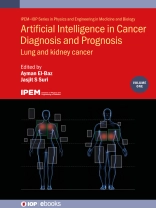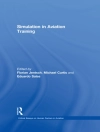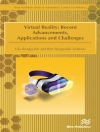Within this first volume dealing with lung and kidney cancer, the editors and authors will detail the latest research related to the application of AI to cancer diagnosis and prognosis and summarize its advantages. It’s the editors and authors intention to explore how AI assists in these activities, specifically with regard to its unprecedented accuracy, which is even higher than that of general statistical applications in oncology. Ways will also be demonstrated as to how these methods in AI are advancing the field.
There have been thousands of papers written between 1995 and 2019 related to AI for cancer diagnosis and prognosis. However, to this date (and unknown to the Editors) there has not yet been published a comprehensive overview of the latest findings pertaining to these AI technologies, within a single book project(s). Therefore, the purpose of this three volume work and particularly for this first volume dealing with lung and kidney cancer, is to present a compendium of these findings related to these two pervasive cancers. Within this coverage it’s our hope that scientists, researchers and clinicians can successfully incorporate these techniques into other significant cancers such as pancreatic, esophageal leukemia, melanoma, etc.
Key Features:
- This work will contain a comprehensive overview of the latest techniques in Artificial Intelligence (AI) related to lung and kidney cancers.
- All chapter authors and contributors will be world-class researchers in various aspects of AI and appropriate subsets such as machine learning (ML), deep learning (DL) and neural networks.
- The fusion of ‘Big Data’ and ‘AI’ will be incorporated where appropriate.
- Multimodality imaging will be included within specific chapters.
- Extensive references will be included at the end of each chapter to enhance further study.
Sobre el autor
Dr. Ayman El Baz, is Chairperson, Professor of Bioengineering and Distinguished Scholar at the University of Louisville. His major research focus are in the fields of bioimaging modalities and computer-assisted diagnostic systems. He has developed new techniques for analyzing 3D medical images. He has authored or co-authored more than 300 technical articles and edited or co-edited over 40 books. Among his many awards is becoming an AIMBE Fellow (2018) and NAI Fellow (2020).Dr. Jasjit S. Suri is an innovator, scientist and industrialist, who has worked in several fields particularly related to the implementation of AI in biomedicine and healthcare. He has over 50 US and European patents. He has published over 100 referred journal articles in cardiovascular disease and 100 in AI.. In addition, he has edited or co-edited over 50 books. In 2018, he was presented the Marquis List of Achievement Award, the Directors General’s President’s Gold Medal as well as AIMBE Fellow and IEEE Fellow.












